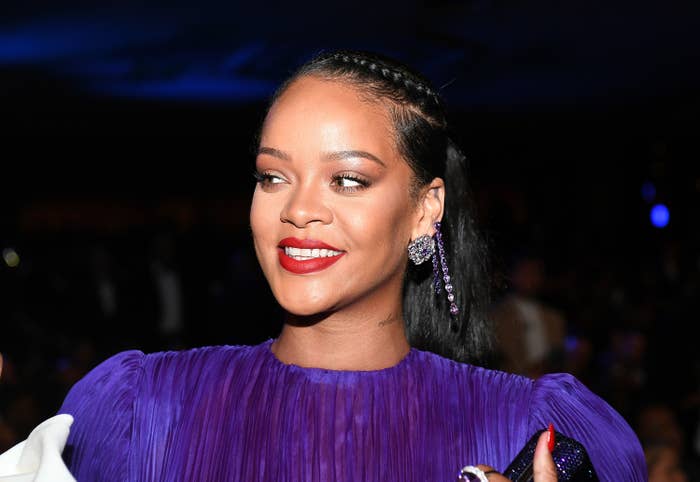
Earlier this week, Rihanna posted a statement to her Instagram story to apologize to the Muslim community after people noticed that one of the songs used in the Savage X Fenty show included Islamic scripture.
Although the song was removed, the situation sparked a wave of anti-Blackness over Twitter, leading Black Muslims to call for change online.
The controversy started when people noticed the song playing during the fashion show, which began streaming on Amazon Prime on Oct. 2. The song "Doom," which samples Islamic scripture called a hadith, was released by an artist named Coucou Chloe in 2017.
In 2018, Chloe posted a now-deleted Facebook status where she credited the sample's origin to a Brazilian song with 12 million views called "Tu Ta Moscando" by MC Carioca. The hadith itself is about al-Harj, a moment near the end-times.
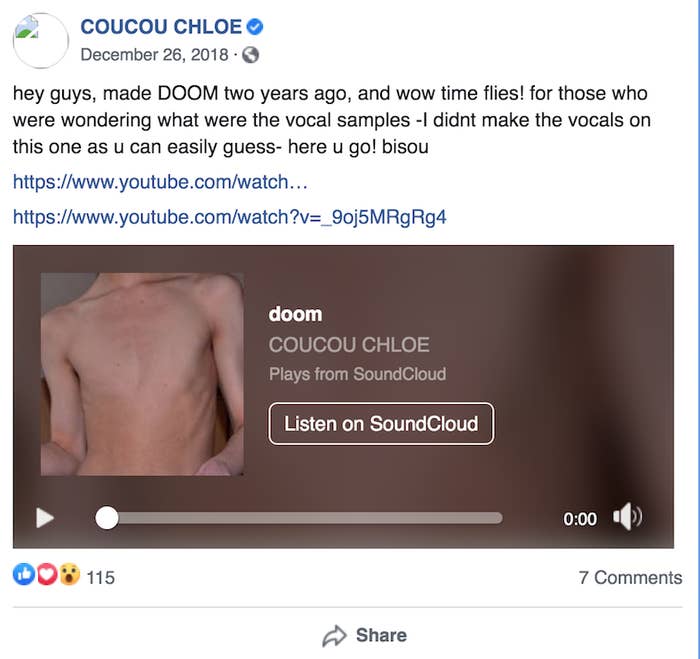
After the show began streaming, the Muslim community vocally complained online about the use of the hadith in the song.
PLEASE OPEN THIS THREAD AND EDUCATE YOURSELVES AND SPREAD THIS INFORMATION TO OTHERS!!! IN RIHANNA’S SAVAGE X FENTY LINGERIE SHOW THEY USED A SONG THAT CONTAINED ISLAMIC HADITH AND OFFENDED MANY PEOPLE!! THEY SPED UP THE HADITH AND PUT MUSIC OVER IT:
Mufti Wasim Khan, dean and director of Islamic Science and Research Academy Foundation who posts TikToks under the handle @MuftiMWK, told BuzzFeed News that the section played in the show is "obscure" even to many scholars, and he can't understand the decision to use it.
"I think that a stronger form of apology would have been to take the whole show down," he said. "I think that it would have made people say that it's not about growing the fanbase, but it's about being sensitive to the religious values."
After the backlash, Chloe apologized for using the sample and said she was having the song removed from different platforms. Rihanna also apologized, writing, "I'd like to thank the Muslim community for pointing out a huge oversight that was unintentionally offensive in our savage x fenty show."
"I would more importantly like to apologize to you for this honest, yet careless mistake," she said.
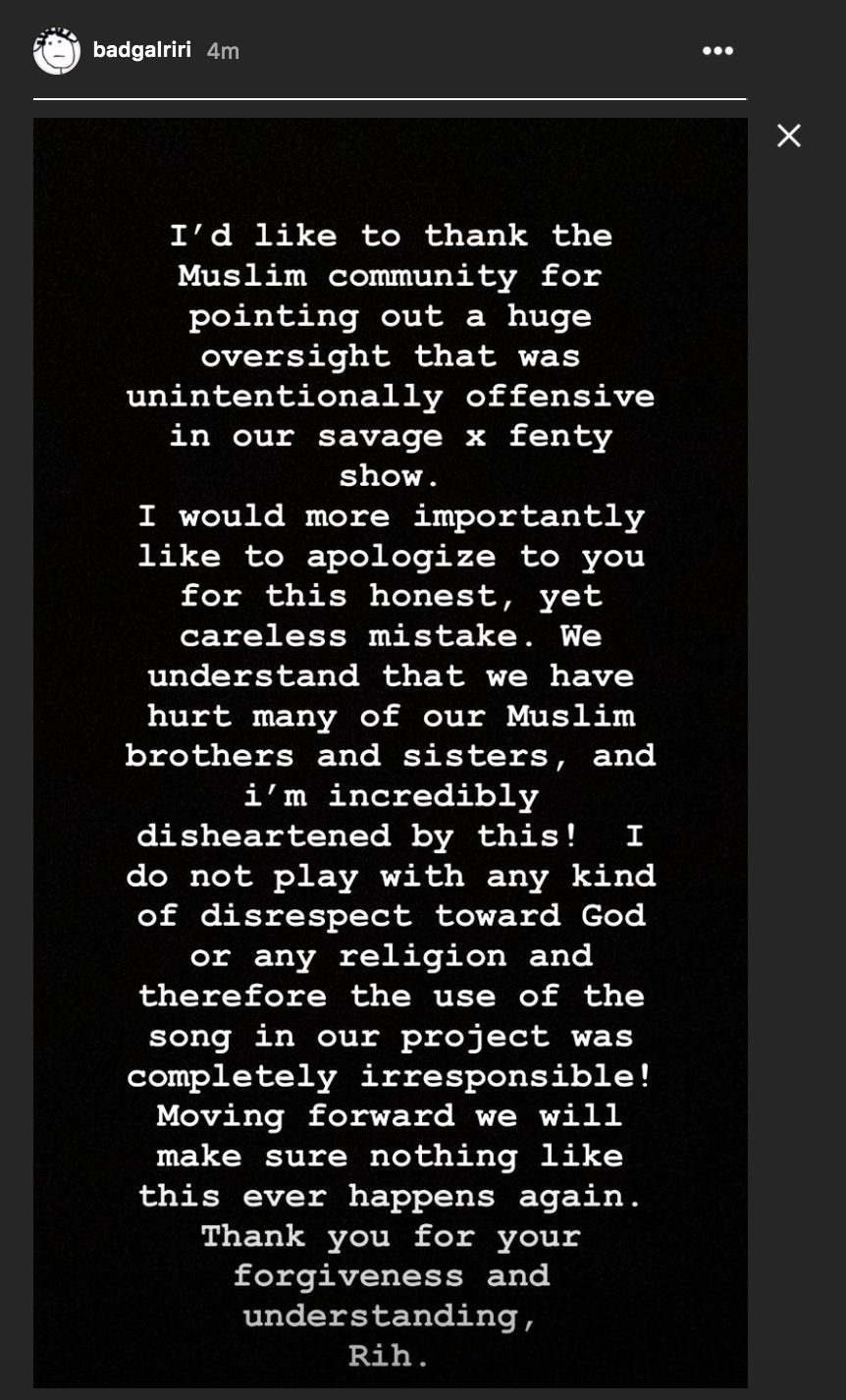
However, as time went on, the community became divided internally over the controversy. Some non-Black Muslims have begun to use the controversy as a way to be racist toward Black people.
?????
Not y’all turning Rihanna playing a Hadith recitation in her fashion show into a Black vs Muslim issue when there are Black Muslims???
Djamil, a Black Muslim TikTok creator, responded in a video after seeing the hate spread online.
"When I went on Twitter, I expected to see Muslim Twitter expressing their outrage over the incident," he told BuzzFeed News. "What I didn’t expect was the anti-Black remarks referring to triggering or sensitive matters in the Black community."
However, Djamil said he sadly wasn't surprised, as he has experienced racism from non-Black Muslims before. "There are those who see Blackness as separate and apart from Islam," he said.
He decided to speak out because he wanted to use his platform to make a difference, saying "enough is enough."
"As a Black Muslim, I face Islamophobia and racism from non-Muslims. I shouldn’t have to deal with racism from my Muslim brothers and sisters," he said.
His video ended up getting 10,000 likes and has been shared over 400 times. In it, he said some in the non-Black Muslim community were using it as an opportunity to "delegitimize Black Lives Matter."
"Being a Black Muslim is exhausting," he said.
Many people responded that they felt seen by Djamil's video.
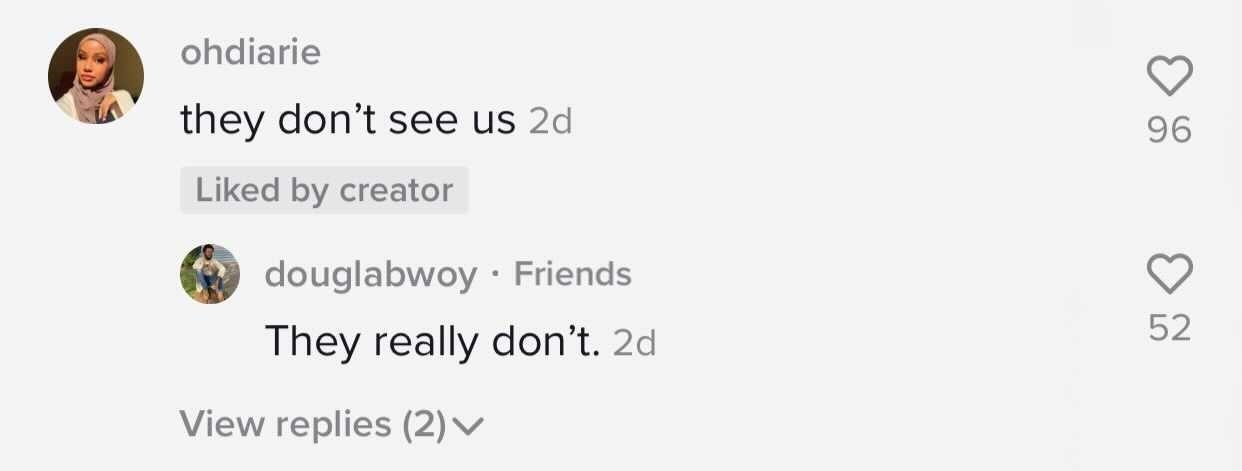
Others said those who were using the incident as an excuse to be racist were not honoring their faith.

Non-Black Muslims also expressed sympathy at the way the situation had played out.
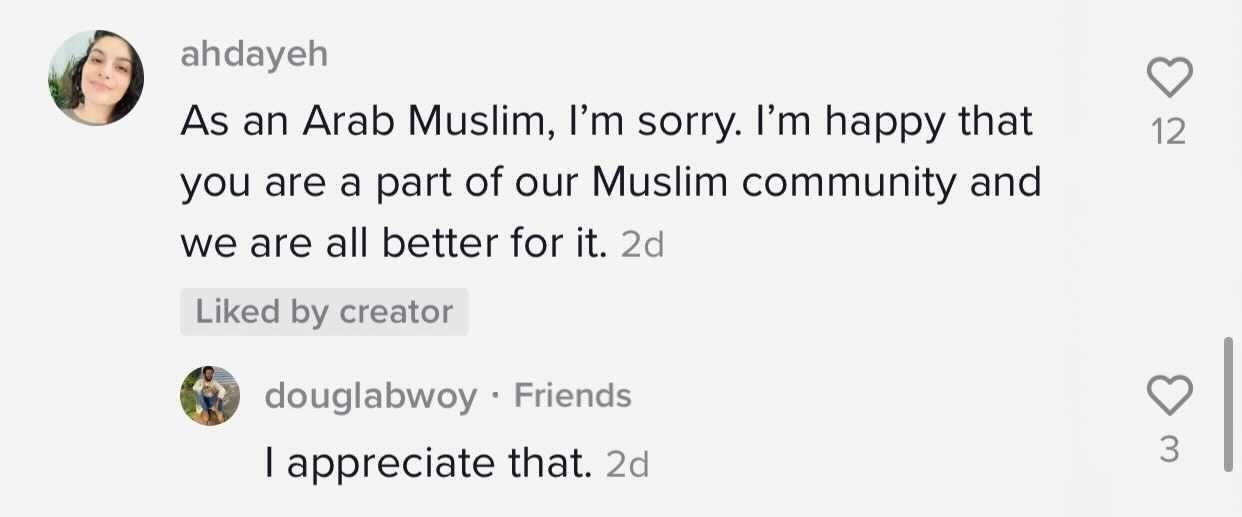
Djamil expressed his disappointment toward the non-Black Muslim community but also said that the non-Black Muslims who’ve apologized on behalf of others were welcomed and appreciated.
He said they can work at being better allies and calling out racism when they see it.
“For this who say ‘we don’t claim them,’ I feel like that’s a way of dismissing the problem,” he said. “If you know your friend, sibling, or parents have an anti-Black bias, try and correct them.”

